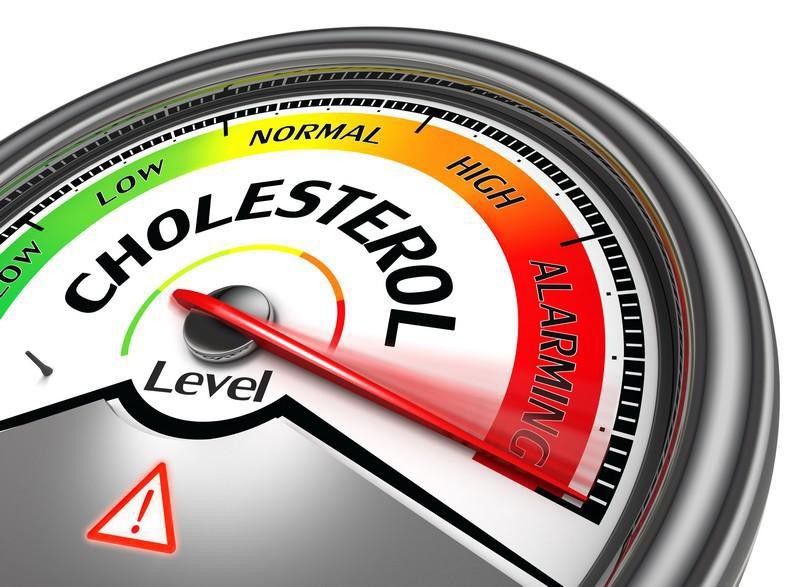What is High Cholesterol?
Cholesterol is a wax-like substance which is found in lipids (fats) in our blood. Our body needs cholesterol to build healthy cells, and produces certain hormones, whereas, a high cholesterol can increase the risk of heart disease and leave a negative impact on health.
High cholesterol may develop fatty deposits in our blood vessels, and these deposits make to difficult for sufficient blood to flow through our arteries. In this case, our heart may not get its required oxygen-rich blood which, in turn increases the risk of a heart attack. A decreased blood flow to your brain might cause a stroke.
How do you lower your cholesterol?
Keeping the cholesterol level controlled is important as it decreases the risk of various health related conditions. Maintaining a healthy lifestyle can reduce cholesterol and improve your heart health:
Eat heart-healthy foods
Increasing the quantity of or adding some nutritious food to your diet like foods rich in omega-3 fatty acids, soluble fiber, whey protein can keep your diet in a heart-healthy process. But that's not it. One who is wiling to reduce cholesterol level has to include some other factors such as Reducing saturated fats and eliminating trans fats.
Regular Exercise
Regular Exercise can help improving your cholesterol. High-density lipoprotein (HDL) cholesterol which in general terms also called 'good' cholesterol, can be boosted with moderate physical activity.
Quit smoking
Quitting smoking could be an important step towards reducing your cholesterol. It can be helpful in improving your HDL cholesterol level.
Lose weight
Extra body weight hugely contributes to high cholesterol. Loosing some weight can be helpful in your cholesterol improvement journey.
What is a healthy cholesterol level by age?
For adults, the total cholesterol levels which is considered to be an acceptable range is less than 200 milligrams per deciliter (mg/dL). A borderline high of cholesterol level in adults reads between 200 and 239 mg/dL and a reading of 240 mg/dL and above is considered high.
-
LDL cholesterol levels is recommended to be at 100 mg/dL. For people with no health issues levels
-
of 100 to 129 mg/dL are acceptable but may become a matter of concern for those with heart disease or heart disease risk factors.
-
HDL levels should be kept higher. A reading of less than 40 mg/dL is considered a major risk factor for heart disease.
-
Although for a child, the total cholesterol should be less than 170 mg/dL. Any reading of total cholesterol over 200 in a child is too high. The Borderline high in total cholesterol for a child ranges from 170 to 199 mg/dL. Any reading of total cholesterol over 200 in a child is too high.
-
The LDL cholesterol levels in a child should also be lower than an adult's. The optimal range of LDL cholesterol for a child is less than 110 mg/dL.
What are the post-treatment guidelines?
The first and the foremost guideline for post-treatment of high cholesterol is maintaining a heart-healthy lifestyle that includes various lifestyle changes such as eating healthy diet, regular exercise, limited or no alcohol, no smoking etc. Adopting these habits can also help control or prevent other risk factors such as blood pressure, blood sugar, diabetes. Eating a diet rich in vegetables, fruits, and whole grains, also low-fat dairy products, poultry, fish, legumes, and nuts. Put a limit to your intake of sweets, sugar-sweetened beverages and red meats. Regular exercise after consulting your doctor how much exercise world be helpful for you. Maintaining a healthy weight. Not smoking
Is High Cholesterol genetic?
There is an inherited form of high cholesterol called familial hypercholesterolemia which demands serious action. Only about 10% to 20% of people with familial hypercholesterolemia know they have it. If untreated, 85% of men and 50% of women with familial hypercholesterolemia will have a heart attack, stroke, or cardiac arrest before age 65. Individuals with familial hypercholesterolemia will pass it on to about half of their children.
What are the Side effects of the treatment ?
Generally, there were no side effects observed during the treatment of high cholesterol levels but it is essential for a patient to maintain his/her healthy lifestyle. However, some experts have suggested that the situations like high blood pressure and weight gaining may occur during the treatment of high cholesterol level.
What not to eat with high cholesterol?
For a person suffering with high cholesterol, abstaining from some particular food items is very important. Reducing saturated fat intake to no more than 6 percent of the total daily calories will be good for a person with high cholesterol.
Avoiding trans fats is also important. Here goes a list of foods to stay away fro:
-
Fatty beef
-
Pork
-
Poultry with skin
-
Dairy products made from whole or reduced-fat milk
-
Saturated vegetable oils, such as coconut oil, palm oil, and palm kernel oil
-
Packaged cookies, cakes, donuts, and pastries
-
Potato chips and crackers
-
Packaged frosting
-
Commercially fried foods
-
Bakery goods that contain shortening
-
Buttered popcorn
-
Cholesterol in foods such as red meat, sausage, organ meats, such as kidney and liver



